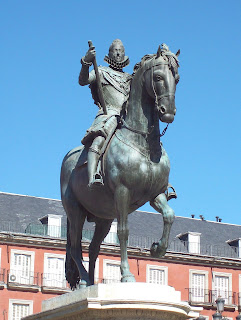Understanding the Madrid 4th of May Elections
As a tourist or expat in Spain, it is an interesting experience to watch an election pass through the city you are visiting. The surrounding events manage to be both close to you, and yet far in direct impact. The atmosphere in the city, however, is distinctly palpable. From campaigners in the Puerta del Sol, to posters lining the Paseo del Prado, one can´t help but feel invested. This article will break down the election to its basics, to give extranjeros a chance to understand what´s going on!
The elections happening on the 4th of May are a Madrilenian regional election. The people of the Community of Madrid will vote to elect the 12th Assembly, with all 136 seats in the assembly up for grabs.
A bit of background: The current political system in Spain is a parliamentary monarchy, whereby the ruling monarch is the official head of state, whilst the prime minister serves as head of the government. The current ruling monarch is Felipe VI and the current prime minister is Pedro Sanchez, of the PSOE party. This political system is based upon the 1978 Spanish consitution, which came into place following the end of General Franco´s rule after his death in 1975.
Also in line with the 1978 constitution is the division of the country into regional autonomous communities; there are 17, of which Madrid is one. As a political system, Spain is highly devolved and decentralised. The autonomous communities divide power among a legislative assembly, elected according to a system of proportional representation, as well as a council of government headed by a president. The president is elected by the legislative assembly, usually the leader of the party or coalition with a majority in the assembly. The current Madrid president is Isabel Díaz Ayuso of the PP (The People´s Party), as part of a right-wing coalition with the Ciudadanos (Citizens) party.
So... what does this all mean? On the 4th of May, Madrileños will vote to fill the seats for the Community of Madrid´s legislative assembly, and thereby will determine the president of Madrid. By the 10th of May, the votes should all be counted, whilst the 19th of May marks the deadline for elected members to be officially proclaimed. Interestingly, this vote was arrived at through several rounds of drama. The elections to the Assembly of Madrid are usually fixed for the 4th Sunday of May every four years, however this year Díaz Ayuso called it early after suddenly breaking off her coalition agreemeent with Ciudadanos. This had been the first time the region of Madrid had been run by coalition, yet it fell apart largely due to tensions between the governing coalition parties, as well as intense criticism of Díaz Ayuso´s handling of the COVID-19 pandemic in the Madrid region. Díaz Ayuso supposedly wanted to call this same snap election around June last year but it was aborted by party leadership, only to go ahead this year.
Here are the candidates:
Angel Gabilondo, of the PSOE party (Partido Socialista Obrero Español, or the Spanish Socialist Workers´ Party). This is the party of the current Spanish prime minister.
Isabel Díaz Ayuso of PP (Partido Popular, or the People´s Party). Díaz Ayuso is the current president of Madrid.
Edmundo Bal of Ciudadanos (Citizens), the centre-right party in coalition with Díaz Ayuso.
Rocio Monasterio, of new far-right party Vox
Pablo Iglesias of left-wing party Podemos
Whilst Spain is technically a multi-party system, until recently Spanish politics had been dominated primarily by the PSOE and the People´s Party. Although nothing can be said definitively, predictions are heavily in Díaz Ayuso´s favour, with surveys and polls consistently putting her up front. There is concern about a future coalition with ultra right-wing party Vox, given the seeming unlikelihood that she will win a majority to allow her to govern without them. Díaz Ayuso came under fire earlier in the campaign for launching her ´Socialism or freedom´and ´Communism or freedom´slogans, increasing the polarised overtones of this election. In recent days, tensions have also escalated after Iglesias of Podemos was sent death threats and bullets in the mail, to the scepticism of Monasterio and Díaz Ayuso.
Needless to say, this is set to be a tense election. We shall have to wait and see what happens.
By Lulu Rehman, April 2021




Comentarios
Publicar un comentario